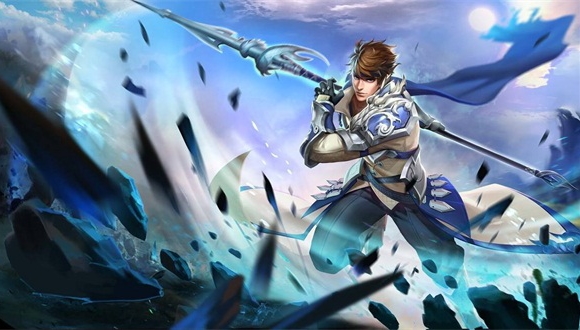Like the mainstream sports realm, eSports has shown an enormous commercial value today. According to esports research house Newzoo, eSports revenues topped $493 million in 2016 and are projected to rise 37 percent to $1.1 billion by 2019.
In 2017, King of Glory, a mobile-based multiplayer online battle game published by Tencent Games, has become a sensational winner in the Chinese eSports market. In July, it was reported that the game had registered over 80 million daily active players and 200 million monthly active players.
According to media reports, the game has generated about 6 billion yuan in revenue during the first quarter, contributing 1.76-billion-yuan in net profit to Tencent Holdings. An in-game microtransaction for a Zhao Yun hero skin, an item that customizes one of the game’s playable characters, raked in US $22 million in a single day.
In June, the analysis company APP Annie said that the game was the No.1 mobile game (excluding Android games) in the world in terms of income generation. In September, Nintendo made a partnership deal with Tencent to port the game onto the Nintendo Switch, due to the game’s tremendous popularity.
These statistics demonstrate the huge commercial potential of Chinese eSports. “Chinese eSports is more popular than some traditional sports regarding the number of users”, said Zhang Yijia, Director of Mobile eSports, Tencent Interactive Entertainment Group (IEG) and President of King Pro League (KPL).
Taking the KPL sponsorship as an example, Zhang told Yutang Sports in an interview that “When I negotiate with our clients this year, our price is typically made based on a 20% to 30% year-on-year growth of the user number. Since our number of subscribers surged in the past year, brands will become more active in the sponsorship business.”
In this regard, Spirite has become the new title sponsor of the 2017 KPL Spring Season, along with other sponsors including Germany-based auto company BMW and Chinese mobile phone brand Vivo.
However, in Zhang’s opinion, there are varying reasons for why the commercial value of Chinese eSports has not been fully exploited as of now. “The sport in China has only seen a real boom in the past 5 to 7 years. Compared with traditional sports, eSports is a very young business, so we have a lot to do in management modeling and talent fostering.” In addition to this, eSports, to some extent, is still facing misunderstandings from the public.
The good news is, eSports has been recognized as a “sport” to the extent that it will appear in the Asian Games as a medal sport in 2022. Additionally, this past August, during an Olympic Summit, under the former guidance of IOC president Thomas BachIn, it was agreed that "competitive eSports could be considered as a sporting activity, as the players involved prepare and train with an intensity which may be comparable to athletes in traditional sports.” In other words, eSports is embracing a new era, when its sponsorship value will be given an even greater importance.
China should start with games like King of Glory to rethink the eSports industry as a whole. “If we see it as a game or an event we promote as a publisher, its lifecycle may be limited,” Zhang said, “when we think out of the box, learning from the traditional sports, to combine live broadcasters, sponsors, media companies and sports agencies, Chinese eSports is expected to become a more comprehensive industry.”
As one of the most popular eSports games in China, King of Glory still has a long way to go to prove successful commercially. Tencent IEG sees quality sponsors as their first choice, believing that shared values will be beneficial to the long-term development of the game.
At the same time, we can’t talk about gaming, without talking about video game streamers. Rights holders of the game are looking to find more streamers including Tencent Sports as well as commercial partners for the league and clubs.
“We are confident in turning King of Glory into a long-term game,” Zhang concluded, “the success of the League of Legends is the best example because it can still arouse players’ passion for eSports after 7 years since it first launched in China. I believe the King of Glory can be just as successful as the LoL, and even better if we can make full use of various public resources.”
Proofread by William Logsdon
